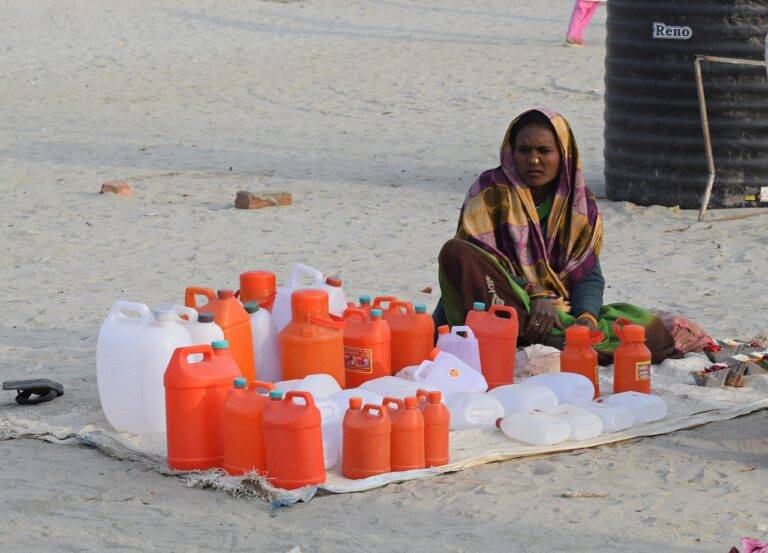Agribusiness and the Sustainable Development Goals: 11xplay com, Gold365, Skyfairs
11xplay com, gold365, skyfairs: Agribusiness and the Sustainable Development Goals
When it comes to addressing the global challenges of poverty, hunger, and environmental sustainability, agribusiness plays a crucial role. As the world’s population continues to grow, the demand for food, fiber, and other agricultural products is increasing. At the same time, we are facing issues such as climate change, water scarcity, and the loss of biodiversity. In this context, agribusiness has the potential to contribute significantly to achieving the Sustainable Development Goals (SDGs) set by the United Nations.
In this blog post, we’ll explore how agribusiness can support the SDGs and help create a more sustainable future for all.
The Role of Agribusiness in Poverty Eradication
One of the key objectives of the SDGs is to end poverty in all its forms by 2030. Agribusiness has the potential to contribute to this goal by creating employment opportunities, empowering smallholder farmers, and promoting inclusive economic growth. By investing in sustainable agriculture practices and value chains, agribusiness can help improve the livelihoods of millions of people around the world.
Heading: Empowering Smallholder Farmers
Smallholder farmers play a crucial role in global food production, yet they often face numerous challenges such as limited access to markets, finance, and technology. Agribusiness can help empower smallholder farmers by providing them with the tools and resources they need to improve their productivity and profitability. This can include access to high-quality seeds, fertilizers, and pesticides, as well as training on sustainable farming practices.
Heading: Creating Employment Opportunities
Another way that agribusiness can contribute to poverty eradication is by creating employment opportunities in rural areas. By investing in agribusiness enterprises, companies can help stimulate economic growth, reduce unemployment, and alleviate poverty. This can have a multiplier effect on local economies, as more people have the means to support themselves and their families.
The Role of Agribusiness in Ending Hunger
Ending hunger is another key objective of the SDGs, and agribusiness has a critical role to play in achieving this goal. By investing in sustainable food production and distribution systems, agribusiness can help ensure that nutritious food is accessible to all. This includes supporting smallholder farmers, promoting food security, and reducing food waste and losses.
Heading: Promoting Food Security
Agribusiness can help promote food security by investing in crop diversification, improving storage and preservation techniques, and strengthening food distribution networks. By doing so, companies can help ensure that people have access to a diverse and nutritious diet year-round, reducing the prevalence of malnutrition and hunger.
Heading: Reducing Food Waste and Losses
Another way that agribusiness can contribute to ending hunger is by reducing food waste and losses along the value chain. This includes investing in post-harvest technologies, improving logistics and transportation systems, and raising awareness about the importance of reducing food waste. By addressing these issues, agribusiness can help ensure that more food reaches those who need it most.
The Role of Agribusiness in Environmental Sustainability
Environmental sustainability is a cross-cutting theme of the SDGs, and agribusiness has a significant impact on the environment. By investing in sustainable agriculture practices, resource-efficient technologies, and climate-smart solutions, agribusiness can help mitigate climate change, protect ecosystems, and conserve natural resources.
Heading: Mitigating Climate Change
Climate change is one of the biggest threats facing our planet, and agriculture is both a contributor to and a victim of climate change. Agribusiness can help mitigate climate change by reducing greenhouse gas emissions, sequestering carbon in soils, and promoting renewable energy sources. By investing in sustainable agriculture practices such as agroforestry, conservation agriculture, and water-efficient irrigation, companies can help reduce their carbon footprint and adapt to a changing climate.
Heading: Protecting Ecosystems
Agribusiness has a significant impact on ecosystems, from deforestation and land degradation to water pollution and biodiversity loss. By investing in sustainable land management practices, restoring degraded lands, and protecting natural habitats, companies can help preserve ecosystems and promote biodiversity. This is not only important for the environment but also for the long-term sustainability of agriculture and food production.
Agribusiness FAQs
Q: What is agribusiness?
A: Agribusiness refers to the business of agricultural production, processing, and distribution. It includes a wide range of activities such as crop cultivation, livestock farming, food processing, and agri-input supply.
Q: How can agribusiness contribute to the SDGs?
A: Agribusiness can contribute to the SDGs by promoting inclusive economic growth, creating employment opportunities, empowering smallholder farmers, ending hunger, promoting food security, and protecting the environment.
Q: What are some examples of sustainable agriculture practices?
A: Sustainable agriculture practices include crop rotation, organic farming, integrated pest management, agroforestry, and water-efficient irrigation. These practices help protect the environment, improve soil fertility, and conserve natural resources.
Q: How can agribusiness help reduce food waste and losses?
A: Agribusiness can help reduce food waste and losses by investing in post-harvest technologies, improving storage and transportation systems, and raising awareness about the importance of reducing food waste. By addressing these issues, companies can help ensure that more food reaches those who need it most.
In conclusion, agribusiness has a crucial role to play in achieving the Sustainable Development Goals. By investing in sustainable agriculture practices, empowering smallholder farmers, promoting food security, and protecting the environment, agribusiness can help create a more sustainable future for all. It is essential for companies, policymakers, and other stakeholders to work together to harness the potential of agribusiness for positive social, environmental, and economic impact. By doing so, we can build a more equitable and sustainable world for current and future generations.







